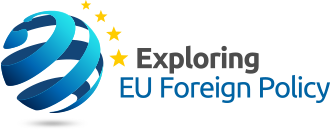Literature
Ejrnæs, A., Jensen, M.D., Schraff, D. & Vasilopoulou, S. Special Issue: Regional Inequality and Political Discontent in Europe. Journal of European Public Policy, 31(6), 2024.
Gieg, P., Lowinger, T., Pietzko, M., Rüger, C., Scheuermann, M., & Zürn, A. (Eds.). Jenseits der Krisen: Potenziale der europäischen Integration im 21. Jahrhundert. Springer, 2023.
Leruth, B., Gänzle, S., & Trondal, J. The Routledge Handbook of Differentiation in the European Union. Routledge, 2022.
Balfour, R., Bomassi, L., & Martinelli, M., The Southern Mirror: Reflections on Europe From the Global South, Carnegie Europe, 2022.
Ikani, N. (Ed.) . Crisis and change in European Union foreign policy: A framework of EU foreign policy change. Manchester University Press, 2021.
Schade, D. The EU in Association Agreement Negotiations: Challenges to Complex Policy Coordination, Routledge, 2019.
Diez, T., & Tocci, N. (Eds) The EU, Promoting Regional Integration, and Conflict Resolution. Palgrave Macmillan, 2017.
Telò, M. (Ed.). European Union and New Regionalism: Regional Actors and Global Governance in a Post-Hegemonic Era. Ashgate, 2014
EU Links
EEAS links to the various regions throughout the world with which the European Union maintains external relations.
List and links to the websites of the 141 EU Delegations around the globe, which since the Lisbon Treaty have been centrally coordinated by the EEAS.
Summaries of EU legislation - relations with third countries
Summaries of legislation concerning relations with the Western Balkans, Eastern Europe and Central Asia, Mediterranean partner countries, Middle East, Latin America, Asia and Industrialised countries.
Knowledge sharing platform created by the European Commission's Directorate General for International Partnerships (INTPA).
Think Tank European Parliament
This page provides access to all publications by the Think Tank of the European Parliament related to a region of the world.
Other Links
United Nations University Comparative Regional Integration Studies (UNUCRIS)
The mission of UNU-CRIS is to contribute to achieving the universal goals of the UN and UNU through comparative and interdisciplinary research and training for a better understanding of the processes and consequences of intra- and inter-regional integration. The aim is to act as a think-tank that generates policy-relevant knowledge about new forms of governance and cooperation and to contribute to capacity building on issues of integration and cooperation, particularly in developing countries.




